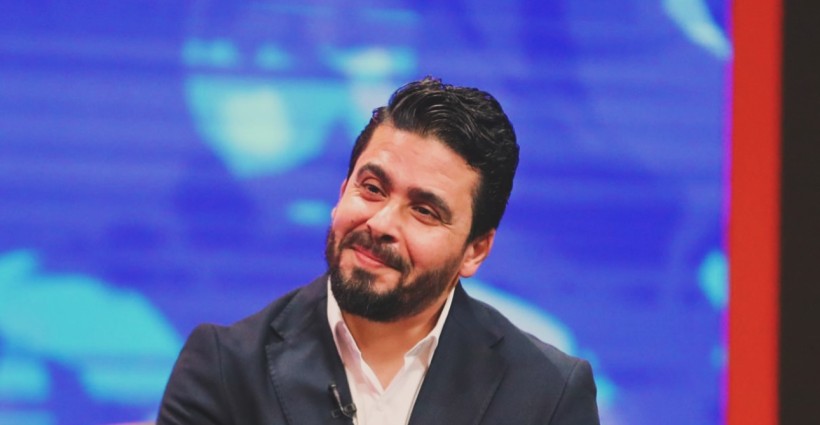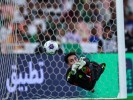
Noor Sabri Reveals Problems of the Iraqi National Team After Failing to Qualify for the World Cup
Former Iraqi national team star, Noor Sabri, identified the real problem in the current Lions of Mesopotamia after the team failed to reach the 2026 World Cup in the United States, Canada, and Mexico, following a goalless draw with the Saudi national team on Tuesday evening.
The Asian playoff matches for the Iraqi national team ended with them finishing second in Group B, trailing by goal difference behind the Saudi team, which secured a direct qualification spot for the World Cup for the seventh time in its history.
Sabri said in media statements: "Anyone who watched the matches against Indonesia and Saudi Arabia will see that the Iraqi team appeared with more confidence against the Green team, but unfortunately, this performance lacked offensive effectiveness at a time when the team desperately needed to score at least one goal to qualify for the World Cup. However, this was difficult to achieve due to the technical differences between the Iraqi and Saudi teams."
He added: "The problem with sports in Iraq is the absence of future planning. We always see that plans are temporary, and decisions can change overnight, while proper planning should be in place, and everything should be well thought out with emergency and alternative plans. This is why we do not see these decisions among the officials in Iraq, and thus confusion reigns supreme, and after every failure, there are different justifications."
Sabri pointed out: "The real problem with the Iraqi national team is that this generation is the least quality compared to all previous generations of Iraqi teams. The team lacks leadership and effective elements on the pitch, and players must realize the weight of the responsibility of the jersey they wear. They also need to work hard to elevate their technical and physical levels because they represent an entire country, and there is a new opportunity in front of them in the matches against the UAE."
Sabri noted the missed opportunities, saying: "Many chances were available to Iraq, whether in the initial decisive qualifiers or in the current playoff. In the match against Indonesia, more than one goal could have been scored, and the task would have been easier. Iraq was playing for both a draw and a win, but talking about this will not be beneficial now. There are matters we should not discuss outside the technical framework, but the fact is that Iraq needs significant work to qualify for the World Cup."
Noor Sabri emphasized that Iraqi football needs a comprehensive restructuring at the level of players and technical management, focusing on future planning and creating a professional working environment that would raise the level of the national team and avoid past mistakes, ensuring that qualification failures are not repeated in the future.
The Asian playoff matches for the Iraqi national team ended with them finishing second in Group B, trailing by goal difference behind the Saudi team, which secured a direct qualification spot for the World Cup for the seventh time in its history.
Sabri said in media statements: "Anyone who watched the matches against Indonesia and Saudi Arabia will see that the Iraqi team appeared with more confidence against the Green team, but unfortunately, this performance lacked offensive effectiveness at a time when the team desperately needed to score at least one goal to qualify for the World Cup. However, this was difficult to achieve due to the technical differences between the Iraqi and Saudi teams."
He added: "The problem with sports in Iraq is the absence of future planning. We always see that plans are temporary, and decisions can change overnight, while proper planning should be in place, and everything should be well thought out with emergency and alternative plans. This is why we do not see these decisions among the officials in Iraq, and thus confusion reigns supreme, and after every failure, there are different justifications."
Sabri pointed out: "The real problem with the Iraqi national team is that this generation is the least quality compared to all previous generations of Iraqi teams. The team lacks leadership and effective elements on the pitch, and players must realize the weight of the responsibility of the jersey they wear. They also need to work hard to elevate their technical and physical levels because they represent an entire country, and there is a new opportunity in front of them in the matches against the UAE."
Sabri noted the missed opportunities, saying: "Many chances were available to Iraq, whether in the initial decisive qualifiers or in the current playoff. In the match against Indonesia, more than one goal could have been scored, and the task would have been easier. Iraq was playing for both a draw and a win, but talking about this will not be beneficial now. There are matters we should not discuss outside the technical framework, but the fact is that Iraq needs significant work to qualify for the World Cup."
Noor Sabri emphasized that Iraqi football needs a comprehensive restructuring at the level of players and technical management, focusing on future planning and creating a professional working environment that would raise the level of the national team and avoid past mistakes, ensuring that qualification failures are not repeated in the future.










